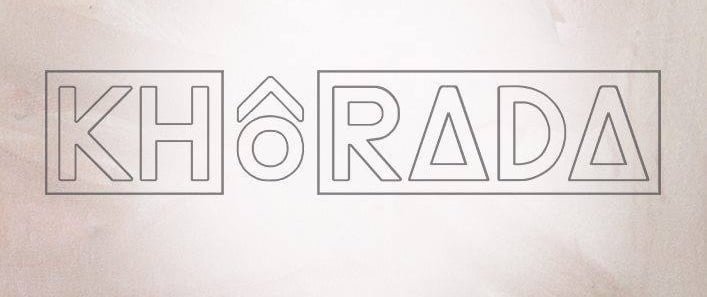Khôrada break the mold with their album Salt, a gorgeously performed album that oozes style and great songwriting, paying homage to the members’ former bands’ sounds whilst crafting their own niche.
Release date: July 20, 2018 | Prophecy Productions | Bandcamp | Facebook
From the dissolution of bands sometimes emerges the formation of a new group, one who can challenge the quality of their previous acts. Khôrada is one of those acts, forming from the dissolved titans Giant Squid and Agalloch. They’ve produced a debut called Salt that is emotionally charged, well-rounded and clearly, an album made by experienced musicians who’ve been given a fresh lease of life creatively. It is hard to say which band the sound draws more from, but this is a deft combination of both Giant Squid and Agalloch, that much is for sure. The heavy vocals are not used as much as in Agalloch; the band plays more to lead vocalist Aaron John Gregory’s strengths and lets the instruments bring the heavy.
Aside from those comparisons, the raw, organic-sounding guitars and drums give Salt a sound similar to Baroness, not to mention the brilliant melodies that litter the album. Khôrada‘s sound is a brilliant cross between old school doom, black metal, and progressive rock, with Pink Floyd influences bursting out of the record’s groundwork. Whilst having the hallmarks of an old-school LP, the structure of the songs is, very modern, with great progression and innovative switches between the motions. However, pidgeon-holing this band would be an affront to music, so rich is their sonic plateau. Whilst this sounds clichéd and you’ve heard it a hundred times before, take Salt for a spin and see what I mean.
Opening track “Edeste” begins with some forlorn horns, which set the dark, emotional tone of the song (and indeed album), until the guitars and drums join to embed those emotions within the listener. The vocals match the mood, and then lead the way as the song strays into a heavier, doomier middle section, before Khôrada bleed the rest of the song out with a brilliantly atmospheric closer, where the subtle horns lend a hand to the emotive vocals. The album moves seamlessly from one song to the next, and the band kick into the next song in epic fashion. “Seasons of Salt” hits hard to begin with, before again returning to the atmospheric cinematic progressive rock that was present in “Edeste”. Employing the use of repeated vocal hooks, you soon become familiar with this song, as it stands out from the others[comma] which head off on a tangent through genres and styles. Wracking my brains for other comparisons, I fell upon Subterranean Masquerade but lacking the world music influences.
All but one song stand at an impressive six minutes plus, but none drag on or tire the listener out. They are extremely emotional and dark, probably better to listen to on a cold, haunting day, but they work in the summer months too, especially when journeying. “Glacial Gold” is a perfect example of this: the guitars and drums bringing a slow march to the song for the most part, with drawn-out, harrowing vocals escalating to epically crushing with the song’s climax. The guitar work at the end of this song is grandiose, the dual guitars soloing against one another, and the march breaks out into a jog for the last few minutes. This song also perfectly encapsulates how great Khôrada are at finishing songs; the gorgeous ambient slowdowns after said climax make a mockery of the bands who simply cut their song off, or turn the mix down in a fade-out.
The interlude “Augustus” shows the band in their creative element, being a vocally focused folk song which leads brilliantly into the next track, “Wave State”. In this song and others on the album, the Agalloch members bring back their black metal influences from times past, and employ them with deftness. It doesn’t feel out of place, and purely compliments the song, whilst allowing for an easy transition to the next movement. The album’s closer “Ossify” is another example of how Khôrada progress through a multitude of styles, and the finale of the track is a brilliant cacophony of noise after another cinematic progressive metal climax. Here the band really let their creative sides go, with a fusion of noise that to some ears might sound over the top, but it is a brilliant way to close out a fantastic song and wonderful album.
Some of our readers might find the album troublesome to get into, especially if you strive for over-produced prog-metal, but the raw sound has encapsulated me. Whilst this is the wrong time of year to be listening to this for me, I’m sure in the winter this will be spun often. Khôrada have come out strong from the acrimonious split of Allagoch, leveraging the talents of Gregory brilliantly and producing an album that showcases their creative freedom, away from the expectations that fans wanted from the two former bands. There is still a showcase of the sounds from those bands, and it’ll be great to see where this exciting band go next.






